Home > Principle Investigators, Research Themes

| Development of personalized preventive medicine toward neurodegenerative diseases based on pathomechanistic insight explored by iPS cell technology | |
| Analysis of molecular basis of stem cell generation using guided differentiation of iPS cell into tissue stem cells | |
| A comprehensive analysis of the mechanism underlying the genome-wide epigenetic reprogramming in the germ cell lineage and its application | |
| Analysis of molecular mechanisms involved in physiological cell reprogramming | |
| In vivo directed reprogramming of neural crest cells | |
| Directed induction of chondrogenic stem / progenitor cells from dermal fibroblast culture by defined factors | |
| Molecular mechanisms of transcriptional regulation in cell reprogramming and differentiation |
Development of personalized preventive medicine toward neurodegenerative diseases based on pathomechanistic insight explored by iPS cell technology
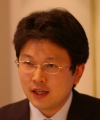
Recapitulation of disease-niche, by using neural cells from disease-specific iPS cells of Alzhemimer's disease or Amyotrophic lateral sclerosis, will make it possible to monitor misfolded protein, and to evaluate the responsible molecule(s) for neurodegeneration by genetic analysis or by animal experiments. The research will develop the concept, "early diagnosis and treatment", which is critical for conquering neurodegenerative diseases, into personalized preventive medicine.
Analysis of molecular basis of stem cell generation using guided differentiation of iPS cell into tissue stem cells
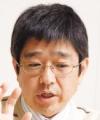
The tissue stem cells such as mesenchymal and hematopoietic stem cells and renal progenitors are invaluable to the medical therapies for intractable diseases. This study aims 1) Establishment of induction method from iPS cell into tissue stem cell through identifying the intermediates during iPS cell differentiation, and 2) Elucidation of molecular mechanism of stem cell development using iPS cells. Our results are expected to contribute to the generation of the new basis that can not only help promote the conventional treatment with tissue stem cells but also facilitate the development of novel therapies using tissue and induced-pluripotent stem cells.
A comprehensive analysis of the mechanism underlying the genome-wide epigenetic reprogramming in the germ cell lineage and its application
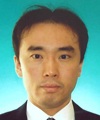
Germ cell development involves genome-wide epigenetic reprogramming, which occurs in a highly ordered fashion. Unveiling the mechanisms involved in this process would be important for understanding the molecular logic for epigenetic reprogramming in general, which will shed a new insight into the mechanisms underlying iPS cell induction. In this project, we succeeded in inducing primordial germ cell-like cells (PGCLCs) from mouse ES cells and iPS cells. The PGCLCs contributed to spermatogenesis upon transplantation into testes and the resultant sperm contributed to fertile offspring. We can now generate a large amount of PGCLCs in petri dish. This work contributes to the clarification of the mechanism of the genome-wide epigenetic reprogramming.
Analysis of molecular mechanisms involved in physiological cell reprogramming
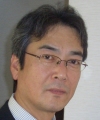
It has emerged that somatic cell reprogramming occurs in vivo physiologically and endogenously. We have recently found the possibility that the hematopoietic stem cell (HSC) population induces reprogramming of somatic cells into the stem cell lineage through delivery of stemness factors. This reprogramming method may be utilized for regenerating damaged tissue under physiological conditions. We will attempt to define this physiological pathway of cell reprogramming at the molecular level and believe that this will contribute to the development of new technology for tissue regeneration.
In vivo directed reprogramming of neural crest cells

Yoshiko Takahashi
Professor, Kyoto University
The iPS technology has opened a way to reprogram differentiated cells into other cell types. Progress of iPS research has mostly been made in vitro system, which requires a long-term cell culture and subsequent cell transplantation into host animals. We aim to establish an in vivo directed reprogramming technology with neural crest cells as a model. Neural crest cells are a population of stem cells that give rise to peripheral nervous system and pigment cells. The principle of technology developed for neural crest cells can also be applied to other cells/tissues, and it will therefore serve as a general basis for advanced regenerative medicine.
Directed induction of chondrogenic stem / progenitor cells from dermal fibroblast culture by defined factors
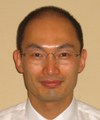
The generation of iPS cells has enabled full reprogramming of somatic cells into pluripotent stem cells, followed by differentiation to other cell types of diseased organs. Alternatively, we aim to induce chondrogenic stem / progenitor cells directly from mouse dermal fibroblast culture by employing methods of directed reprogramming. Induced cells could produce homogenous cartilage tissue in vivo, providing materials with joint diseases in regenerative medicine. This approach induces cells without reversion to a pluripotent stem cell state, possibly reducing a risk of tumorigenesity and producing homogenous tissues of diseased organs.
Molecular mechanisms of transcriptional regulation in cell reprogramming and differentiation
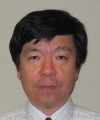
This study aims at (I) elucidation of molecular mechanisms of changes in transcriptional programs during cell reprogramming, (II) understanding of transcriptional programs in cell differentiation processes, (III) establishment and molecular analyses of automated programs for transdifferentiation, and (IV) analyses on the action mechanisms of transcription factors and the molecular mechanisms of epigenetic regulation. Thus, this study will provide molecular bases for generation of various tissues and organs from iPS cells.


